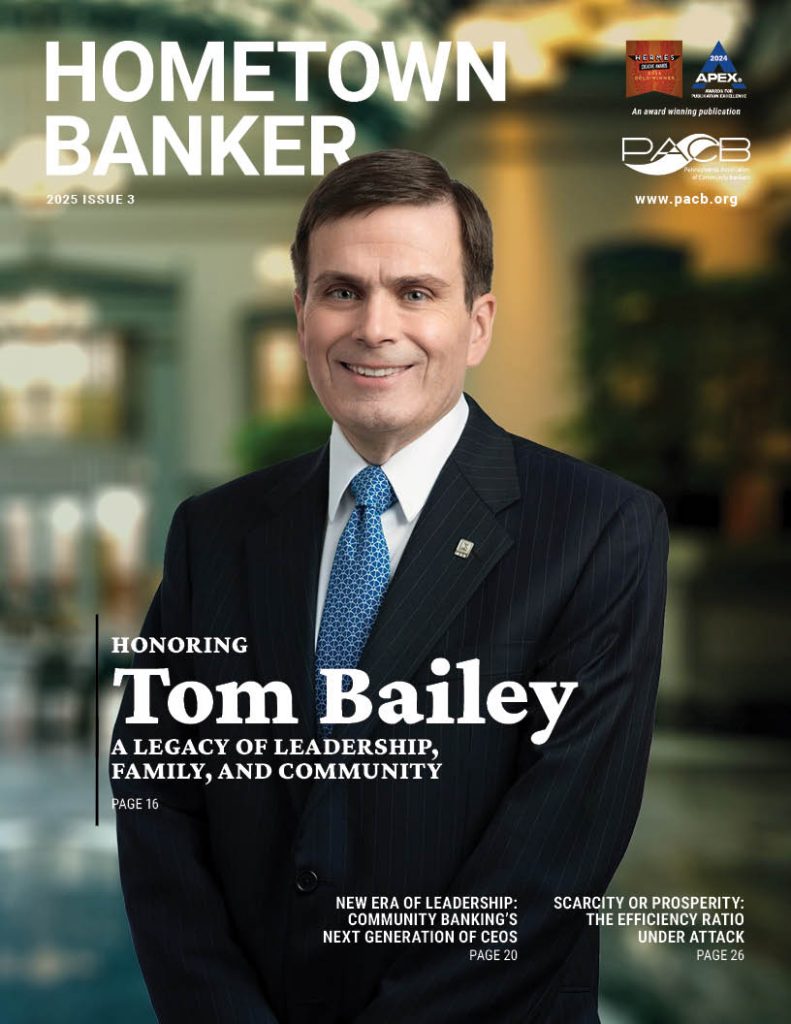
By Allie Kutz
PACB Director of Government Relations
Financial literacy and financial abuse protection are the bread and butter of a community bank. We all want our customers to be well informed about the financial resources available to them and how community bank institutions can be a partner in their lifelong financial journeys. With this comes a need for education on financial risks and fraud tactics as well, so customers can protect themselves from falling victim to scams and abuse. Community banks play a vital role in educating and protecting our customers, which is why financial literacy and financial abuse protection measures have long been a top priority for PACB’s legislative committee and our advocacy team.
The two issues go hand-in-hand. Financial literacy education is a tool utilized to empower consumers to make sound decisions, so we can partner with them on their lifelong financial journeys. In turn, this hopefully raises consumer awareness on fraud risk and scam avoidance. Educating consumers – and future consumers – is vital to lowering incidences of fraud. PACB strongly supports required financial literacy credit hours for high school students. However, there is also an important fight on the back-end to actively protect our customers, especially the elderly, by reporting suspected fraud and abuse for further investigation. You all have seen it at your institutions. Unfortunately, all too often, seniors in our communities fall victim to phone or internet scams or are taken advantage of by someone in a caregiver role. Community bankers are on the frontlines of these situations, as often a bank employee is the first person who identifies a potentially predatory situation and is well positioned to potentially intervene.
This legislative session, we have been working with Sen. Chris Gebhard and his policy staff on both financial literacy for undergraduate students as well as providing indemnity for institutions reporting suspected fraud. First, the senator has been continuing to work on legislation that would provide legal protections for bank institutions to more confidently report suspected fraud or abuse without fear of legal retaliation for attempting to do the right thing to protect a customer. While this legislation has not been formally introduced yet, it is a high priority item for Sen. Gebhard and his team along with other legislative proposals to enhance protections for Pennsylvania’s seniors.
Additionally, Sen. Gebhard introduced Senate Bill 647, which would require completion of a half-credit economics and personal finance course as a high school graduation requirement in Pennsylvania. The legislation would set the course content in line with the standards established by the second edition of the Voluntary National Content Standards in Economics and the 2013 National Standards for Financial Literacy, as developed by the Council for Economic Education. Sen. Gebhard has been a passionate advocate for ensuring Pennsylvania students graduate with a basic knowledge of credit scoring and reporting, selecting and managing a credit card, the true cost of credit and debt, home mortgages, planning and paying for postsecondary education, and obtaining credit for large purchases, so they are set up for the best possible success as adult consumers. PACB has been working alongside the senator as a resource and interested stakeholder in support of this bill. As of this writing, Senate Bill 647 has passed the Republican controlled Senate and currently sits in the House Education Committee awaiting further consideration.
While this SB 647 works its way through the legislative process, the Pennsylvania State Board of Education has formed a committee to conduct regional policy hearings to receive input from interested parties on draft recommendations to amend the academic standards for Career Education and Work, Economics, and Family and Consumer Sciences and recommendations to establish new academic standards in Personal Finance. PACB has been invited to submit testimony as a stakeholder, and we are excited for the opportunity to advocate for these important academic standards directly to the State Board of Education. Students deserve to leave high school equipped with the knowledge and resources to make well-informed decisions about their financial futures, regardless of their personal backgrounds. Setting students up for financial success, no matter their individual postgraduate plans, only stands to benefit our global, national and local economies as well as the community banking industry.





